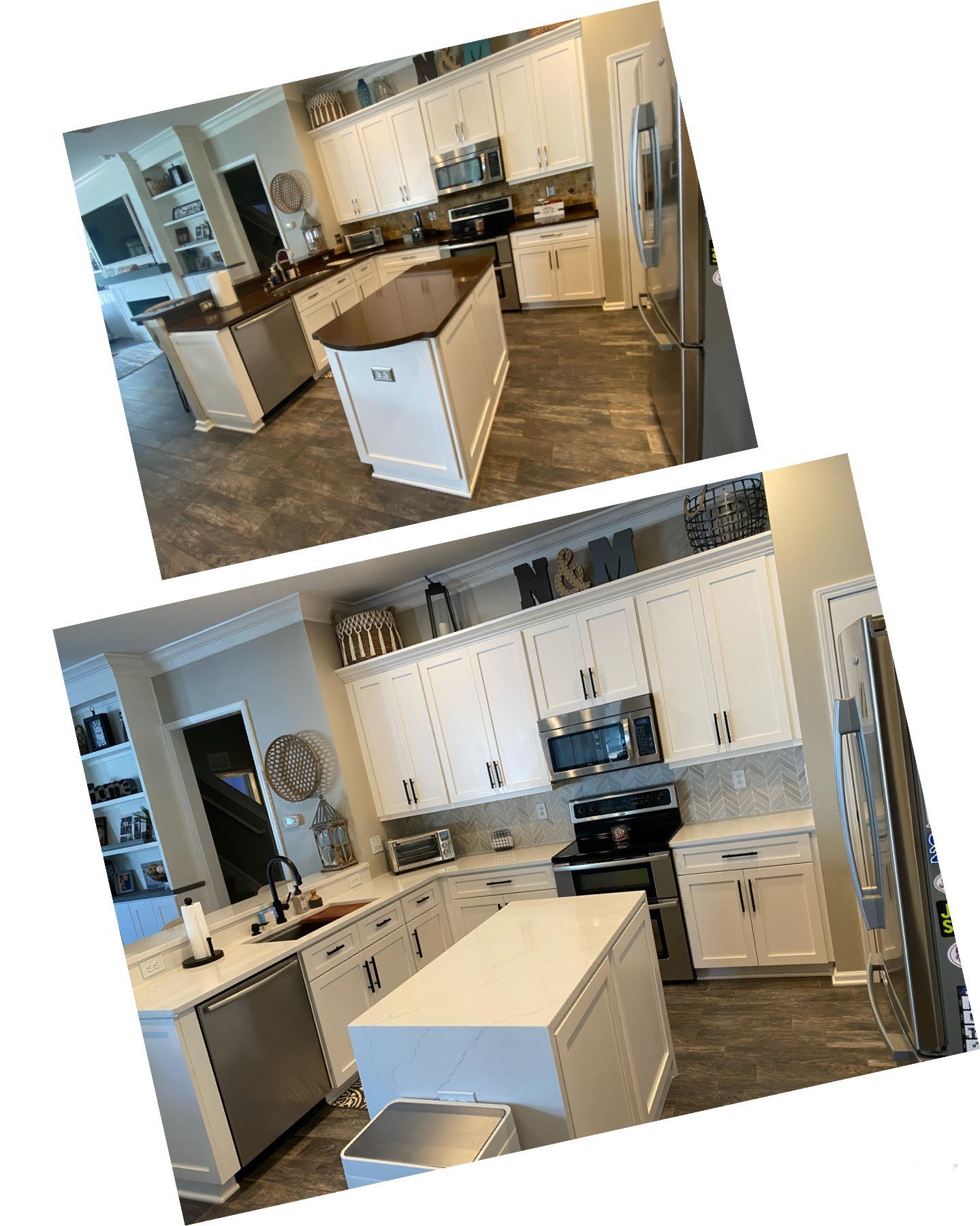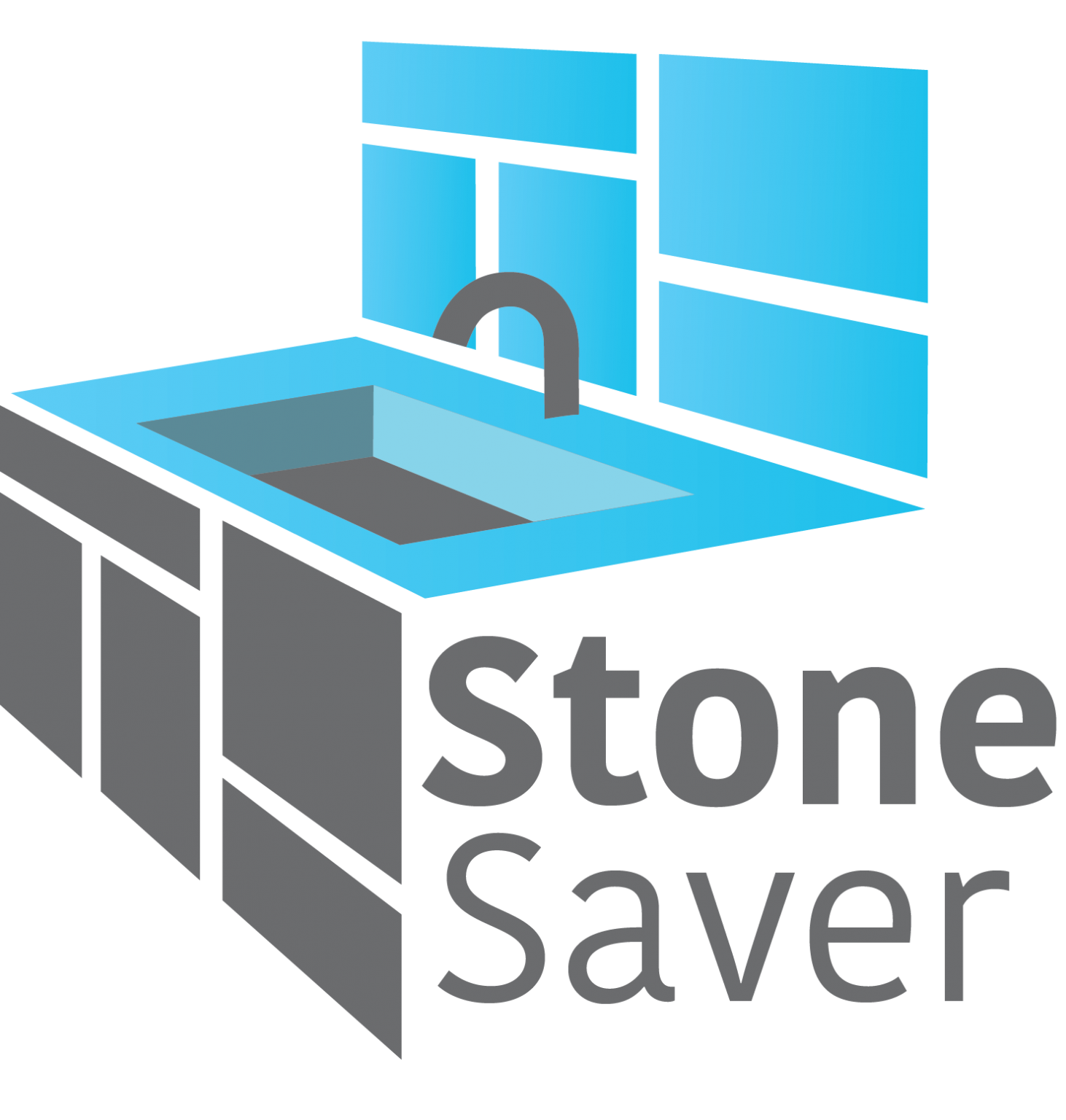FAQs

FAQ’s
- If getting new cabinets, we template the newly installed cabinets, not the old ones.
- If re-facing, we can install countertops before re-facing takes place.
- If getting a new sink, we need the sink when we come out to template which our subcontractor will take with them in order to cut and polish the cutout to your sink’s exact measurements. This is needed for an undermount sink, but not always for a drop in, or farm sink.
- We cut the faucet holes on site at installation, so the faucet that will be installed in your new counters has to be present at that time.
IS QUARTZ BETTER THAN GRANITE?
The material is appropriately sealed during install.
Some primary differences between quartz and granite:
1. Granite can withstand temperatures from 500 degrees to even 1200 degrees and quartz can only withstand up to 300 degrees.
2. Granite is not available in the same colors and designs (veining) as quartz but has its own natural variation in color.
3. For granite, to prevent possible damages, avoid extreme changes in temperatures. An example is placing something cold on the counter then replacing it with something very hot. However, Granite began life as liquid magma deep within the Earth and over million of years is cooled and compressed, so it has a natural resistance to heat damage. Heat does not damage granite.
4. Raw meat is indirectly harmful to your counter tops. This means that the actual fluid and residue that seeps from raw meat won’t instantly harm a granite surface. However, if you get into the habit of placing raw meat on a granite surface, taking advantage of granite’s durability, you’ll need to clean and disinfect your counter tops more often. Some common counter top disinfectants like bleach and vinegar solutions are harmful to the surface and can actually discolor it. Some disinfectants can even wear down the protective sealant that keeps granite non-porous and hygienic.
5. Nearly everyone has seen the horrid image of a glass of red wine spilling onto a perfect, white rug. The king of stains. Believe it or not red wine is also bad for your granite counter tops! It’s actually not the red color that does you in but rather the acidity of the wine.
6. Avoid using your granite surface as a cutting board. This can cause chips, scratches, dings and other damage. The granite might return the favor by dulling your knives.
7. Although granite may not be invulnerable, it’s fairly close to it. With the right treatment of your natural stone they can last for DECADES without damage.
WHAT’S THE SCOOP ON QUARTZ?
Once installed, you can expect your quartz counter tops to withstand heat up to about 300 degrees. IF exposed to temperatures above this range, the resin binders
with the quartz slab can change their chemical state- often impacting the color of the quartz.
Quartz kitchen counter tops can be designed to have the appearance of natural stones like marble or granite, but can also be given the appearance of other materials like concrete. The way that quartz counter tops are produced means that the resins and polymers used to create them act as sealer. Not only do they make for a smoother surface which doesn’t collect bacteria, they are completely impervious to water or any contaminates.
Quartz kitchen counter tops are also created by using existing quartz minerals which have been ground finely, Once combined with polyester resins and pigments, pressure and heat are the best of both worlds. Quartz is not a stone but rather a mineral composed of silicon and oxygen. While around 90% of a quartz counter top is made up of ground up quartz, the remaining 10% is comprised of resins
DOES QUARTZ COST MORE THAN GRANITE?
Typically, yes. If comparing a Level 1 quartz with a Level 1 granite, quartz can run about $10 more per SF (on average) Levels have nothing to do with quality of the stone, simply availability.
Quartz is offered in half slabs with certain slab yards which can be more cost effective than purchasing the entire slab for smaller jobs. Conversely, Granite is sold by whole slabs only unless you purchase a remnant.
HOW DO WE CLEAN OUR QUARTZ OR GRANITE?
DO NOT USE acidic products like ones that contain vinegar. Also, do not use bleach, disinfectant wipes or heavy soaps like Dawn or Palmolive. Only products with PHD balance. Over time, harsh cleaners can wear away the protective sealer on your stone.
All acidic foods are dangerous for granite counter tops, including citrus juice, wine, vinegar and beauty products like nail polish remover. Acidic liquids are more likely to interact with the surface, so be sure to clean up acid spills or splatters with, water and a soft cloth immediately. Dry your granite after cleaning to prevent water marks.
DO QUARTZITES REQUIRE EXTRA SEALER?
Yes, we always charge a fee to apply a Dry treatment to those materials to add extra protection.
